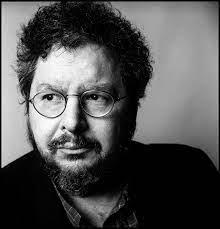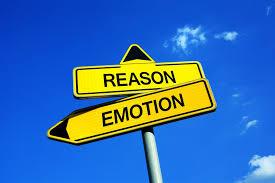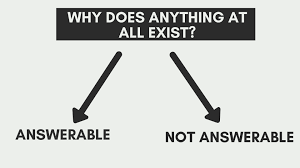At the used book sale, I explained, “I’m buying this because I debated this author on this subject.”

It was David Gelernter, Yale professor and computer science guru.* His book is The Tides of Mind – Uncovering the Spectrum of Consciousness. At a local appearance I had challenged his assertion that no artificial system could ever be conscious. I said what the brain does, in creating mind, is not magic; an artificial system replicating its functions could replicate the results. Gelernter insisted consciousness comes from neurons and neurons only; no neurons, no consciousness. Yet neurons are physical objects, not magical either; in principle they’re reproducible.
His position that there’s something ineffable about consciousness that bars an artificial version strikes me as a sort of nonscientific mysticism. Evocative of how old-time science, baffled to understand what life is, had recourse to the notion of an inexplicable “elan vital.” Today we know better.
Gelernter is religious. Early on he says, “The scientist explains the origins of the Universe with a logical argument. The religious believer tells a story . . . Only the logical argument has predictive power. Only the story has normative moral content. Only a fool would pronounce one superior.”

Here’s the problem with that. Science’s power in explaining reality is unarguable. But the “normative moral content” of any given religious belief is highly arguable. I view the moral stories told by conventional religions as hopelessly muddled, being based on false premises. So, yes, I do pronounce the scientific perspective superior.
The book’s key concept, as per the subtitle, is that consciousness operates along a spectrum. The top level entails high focus, with memory use disciplined, thought being rational, reflection and self-awareness strong. The mid-level is less focused, memory use ranges freely and occasionally wanders; “thought seeks experience;” emotions and daydreams emerge. At the lower level, “memory takes off on its own,” thought drifts, reflection and self-awareness are weak; emotions bloom; we fall asleep.
Sure; we all experience these varied sorts of mental states. But Gelernter makes far too much of his hierarchy and applies it far too rigidly.
He posits that the top of the spectrum governs early in the day, when one is sharp, and it’s basically downhill from there. I myself feel my brain does work best in the morning. And I can plunge down the spectrum fairly fast, especially late in the day. But we spend very little time at Gelernter’s lowest level; basically just while falling asleep. (Sleep itself, in his system, is something apart.)

He seems to say that at the top of the spectrum emotions are held at bay. That’s nonsense. There is never a time when a normal human being is not experiencing emotions. And Gelernter’s fundamental mistake here is drawing a dichotomy between emotion and reason. They’re inextricably entwined; it’s emotion that supplies the impetus for using reason. While I’m writing this, my rational functioning is in the foreground, but there’s always a substrate of emotion humming along. I wouldn’t be writing this otherwise.
Here’s an example of the didactic way Gelernter applies his system. Referring to John von Neumann, he suggests that a “first rate mathematical genius soars higher in his logical thought than nearly anyone else,” being “in the region of ‘exceptional wide awakeness.'” Serious mathematics does require bouts of intense concentration. But so, in their many varied ways, do many other human undertakings. The idea that von Neumann ascended to some higher level, breaking through the ceiling of Gelernter’s spectrum, strikes me as nonsensical.

Right after this, he quotes a young Napoleon saying he does “a thousand projects every night as I fall asleep.” From that meagre crumb, he contends Napoleon did the opposite of von Neumann, expanding the spectrum at the bottom; “the need for sleep isn’t felt until farther than usual in the down-spectrum trip,” which “keeps a mind afloat and awake that would otherwise have long since sunk into sleep.”
But maybe Napoleon merely suffered from insomnia. I sometimes have a similar “thousand projects” night not because I’m expanding the spectrum’s bottom but because my mind just won’t shut up.
More broadly, Gelernter thinks there are high-focus and low-focus people. The former tune out all the “noise” that distracts the latter. But there’s another side to that coin. “Keats,” he goes on to say, “had a different kind of low-spectrum genius. He was able to reach a state of perfect quiet watching, of near-pure experience where the mind, perfectly dilate, floods with being. The average person is nearly asleep at the point of reaching such a state. But Keats was able to be (just be), yet remain awake and aware.” (His emphasis) This is nonsensical pseudo-profundity.

Gelernter does write endlessly about that low spectrum level when one transitions to sleep. Though again that’s a tiny part of one’s day. Further, he repeatedly describes the mind’s workings there as entailing some coherence; though bizarre, making a certain sense, telling a sort of story. Supplying an example from his own experience, involving eight sequential images, all anchored in reality, with an explanation for each. My own experience is diametrically different. Trying to fall asleep, I’ll sometimes make a conscious (!) effort to stop thinking thoughts altogether. And I’ll start seeing images so random, so meaningless, sometimes grotesque, they obviously were not consciously produced. “Good,” I’ll think; that signals I’m falling asleep. Thus, oddly, I am still awake. But not for long.
This is not a science book; nor exactly a philosophy book. It’s about the workings of mind, consciousness, self, human psychology, all entwined. An effort to supply the insight we’d wish introspection could, but cannot. One cannot look inward because one is already there.

Gelernter’s bete noire is “computationalism” — analogizing the brain to a computer’s hardware with the mind as software running on it — which calls the most intellectually destructive analogy in at least the last century. Yet Gelernter seems to forget it is indeed an analogy, not a description of reality. And the analogy is useful in debunking Cartesian dualism — the idea that mind and brain are separate. Now that’s a destructive idea that has bedeviled thought for many centuries. No, minds don’t work exactly like computers. Yet (as Ray Kurzweil’s book, How to Create a Mind, explained via neuroscience) there are many parallels between the workings of brains and computers.
At the book’s end, Gelernter says (his emphasis) “[t]he spiritually minded person experiences something: the unity of many people, objects, or events — or of everything in the cosmos.” He stresses this is not a belief in underlying unity, but the direct experience of it — “a far more formidable thing. Cosmic unity becomes an emotion.” It makes some “feel the presence of God.” This too is not a (mere) belief —”one can be argued out of a belief, but never out of a feeling.”
That seems flatly untrue. But a “belief,” by definition, has to be based on something (even if wrong). It’s “feeling” that should carry the modifier “mere.” A feeling can be based on nothing at all. Surely it should not trump a “belief.”
Applying his spectrum theory of mental functioning, Gelernter argues that ancient people operated lower on the spectrum more often than most moderns, and “spiritually minded people were more common.” As was the “spiritually inspiring feeling of cosmic unity.” And people were “more emotional” (his quote marks) than “we cold fish.” Thus they “would have been more ‘plugged into’ each other, more apt to feel each other’s feelings.”

As a student of ancient history, I find this bunk. If ancients were better at feeling each other’s feelings, how come they so often practiced shocking barbarity? They did have much human connectedness — within the confines of a tribe or band. Evolution programmed us to stick together with our mates, but to regard all others as threats. Only in modern times have most of us (apart from Russians) grown beyond that, our ambit of sympathy widened to encompass more people less like us. And so man’s inhumanity to man has lessened.
And I don’t buy theories that earlier people had mental lives fundamentally different from ours. I’ve written refuting Julian Jaynes’s notorious “bicameral mind” theory that the modern sort of consciousness only suddenly emerged around 1000 BC. Modern humans evolved tens of thousands of years earlier with minds functioning exactly as ours do now. If anything, they’d have been forced to operate more at the spectrum’s higher end, because it was much more challenging just to stay alive.
The “cosmic unity” idea might sound like an elevated “spiritual” one. But what exactly does “cosmic unity” mean? Gelernter writes of “a transcendent unity among far-flung objects and events . . . which often (though not always [!]) suggests one creator who stands outside his creation.” Not to me it don’t. Indeed, it’s quite a wild leap. Gelernter also says (his emphasis) a “feeling of cosmic unity can make a person feel outside of — over and against — creation.”
All this, if actually saying anything at all, is moonshine.
Is everything in the cosmos interconnected? Well, yes, in all deriving from a single event, the Big Bang; and being embedded in Einsteinian space-time, all made of the same particles, all following unwavering laws of physics. Is there something “spiritual” there? The word seems meaningless. If anything, the facts bespeak an ultimate materialism. Everything in and about the cosmos is anchored in a physical reality. Does any of it suggest a God? Certainly not. God seems wholly superfluous. (As LaPlace told Napoleon, “I have no need of that hypothesis.“)

But is it awesome? Yes. Now that’s a word that does have meaning. The vastness of the cosmos is awesome to contemplate. As are those facts about it I recited. And the fact that I came into existence with a mind to contemplate them. Meanwhile reality’s deepest truths still elude us. Either it had a beginning, or didn’t. Is it infinite, and if not, what lies beyond? Neither conundrum can our minds encompass. Likewise the final mystery: why is there something and not nothing?
Call all this “spiritual” if you like. I prefer to say simply: it is what it is.
* I had another connection to Gelernter: the brother of the Unabomber, who tried to blow him up, had been to my house.
